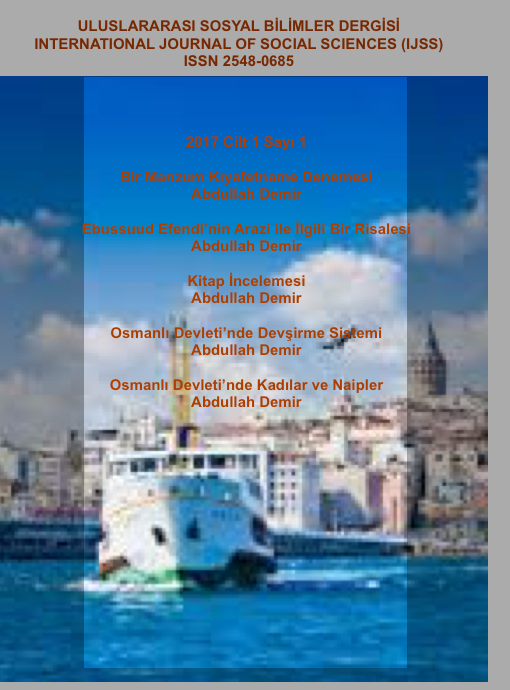Income Distribution And Income Inequality In Nigeria: Bridging The Gap Through
Trader Money (The Buhari Model), Issues, Challenges And Prospects
Income Distribution And Income Inequality In Nigeria: Bridging The Gap Through
Trader Money (The Buhari Model), Issues, Challenges And Prospects
Author(s): Kennedy OhazuruikeSubject(s): Governance, Political economy, Socio-Economic Research
Published by: SD Yayınevi
Keywords: Governance; Income Distribution; Income Inequality; Trader Money; Political Economy Approach;
Summary/Abstract: Good governance has been noted to be the single most important factor in eradicating poverty, income inequality and promoting development through proper income and wealth distribution. Governance is involved with the whole processes that deal with the creation and equitable distribution of wealth and income in the polity, and also in the management of the conflicts that arises in the process. Nigeria over the years has been grappling with the problem of governance and this has seriously affected the very germane issues of wealth and income generation and distribution, despite the fact that she is bequeathed with rich human and natural resources. The paper examined the effect of governance on income distribution and income inequality in Nigerian using the federal government social intervention policy programme of “trader moni” as our case study. The paper is largely theoretical, analytical and descriptive. Anchoring our discuss on the political economy approach, findings amongst others revealed that; the implementation of the trader moni social intervention policy of the federal government is skewed in such a way to generate vote for the ruling party, the APC as the government waited to launch it few weeks the governorship election in Osun and few months to the general elections. however, the paper recommends amongst others that...
Journal: Uluslararası Sosyal Bilimler Dergisi
- Issue Year: 3/2019
- Issue No: 15
- Page Range: 100-121
- Page Count: 22
- Language: English

